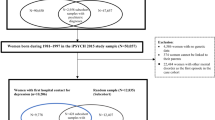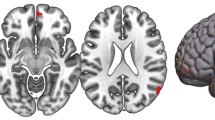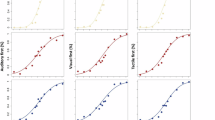Abstract
Postpartum psychosis (PP) is a severe psychiatric disorder–with limited data or consensus on diagnostic criteria and clinical presentation–that affects thousands of people each year. The Massachusetts General Hospital Postpartum Psychosis Project (MGHP3) was established to: 1) describe the phenomenology of PP, and 2) identify genomic and clinical predictors in a large cohort. Results thus far point to a richer understanding of the heterogeneity and complexity of this often-misunderstood illness and its nature over time. Data are collected from those who experienced PP within 6 months of delivery and within the 10 years prior to the MGHP3 interview. Participants provide information via the Mini International Neuropsychiatric Interview for Psychotic Disorders Studies (MINI-PDS), MGHP3© Questionnaire (including assessment of episode onset, duration, symptoms, and treatment received), and other relevant history. This retrospective study uses validated diagnostic tools to evaluate psychiatric history across participants’ lifetimes. Descriptive statistics (e.g., median values, frequencies) were conducted to describe the phenomenology of PP. As of November 3, 2022, 248 participants with histories of at least one episode of PP completed the MGHP3 interview. Most participants met criteria for Bipolar I Disorder with psychotic features (71.8%). During PP episode(s), participants reported odd beliefs or delusions (87.6%), persecutory delusions (75.2%), ideas of reference (55.8%), and visual (52.3%) and/or auditory (48.1%) hallucinations. The median time between delivery and symptom onset was 10 days (SD = 43.72). Most participants reported receiving medication (93.0%) and/or psychotherapy (65.9%). This report describes findings regarding the phenomenology of postpartum psychosis among the MGHP3 cohort, the largest cohort with validated PP studied to date. This ongoing effort to refine the phenotype of PP and to delineate underlying genetic determinants of the disorder will contribute to an enhanced understanding of this serious illness. It also underscores areas for further rigorous assessment using other research methods and sets the stage for translational reproductive neuroscience – including ongoing analyses of neuroimaging and genetic data from the MGHP3 cohort.
This is a preview of subscription content, access via your institution
Access options
Subscribe to this journal
Receive 12 print issues and online access
$259.00 per year
only $21.58 per issue
Buy this article
- Purchase on SpringerLink
- Instant access to full article PDF
Prices may be subject to local taxes which are calculated during checkout

Similar content being viewed by others
Data availability
The datasets generated and/or analyzed during the current study are available from the corresponding author on reasonable request.
Notes
Several protocol deviations were made to include participants who had their episode more than 10 years before the interview date but were confident in strong recollection of their episodes.
References
VanderKruik R, Barreix M, Chou D, Allen T, Say L, Cohen LS, et al. The global prevalence of postpartum psychosis: a systematic review. BMC Psychiatry. 2017;17:272.
Sit D, Rothschild AJ, Wisner KL. A review of postpartum psychosis. J Womens Health (Larchmt). 2006;15:352–68.
Forde R, Peters S, Wittkowski A. Recovery from postpartum psychosis: a systematic review and metasynthesis of women’s and families’ experiences. Arch Womens Ment Health. 2020;23:597–612.
Heron J, McGuinness M, Blackmore ER, Craddock N, Jones I. Early postpartum symptoms in puerperal psychosis. BJOG. 2008;115:348–53.
Friedman SH, Horwitz SM, Resnick PJ. Child murder by mothers: a critical analysis of the current state of knowledge and a research agenda. Am J Psychiatry. 2005;162:1578–87.
Friedman SH, Prakash C, Nagle-Yang S. Postpartum psychosis: Protecting mother and infant: Urgent identification and treatment are needed to prevent potentially fatal consequences. Curr Psychiatry. 2019;18:12–21.
Nager A, Szulkin R, Johansson SE, Johansson LM, Sundquist K. High lifelong relapse rate of psychiatric disorders among women with postpartum psychosis. Nord J Psychiatry. 2013;67:53–8.
Robertson E, Jones I, Haque S, Holder R, Craddock N. Risk of puerperal and non-puerperal recurrence of illness following bipolar affective puerperal (post-partum) psychosis. Br J Psychiatry. 2005;186:258–9.
Chaudron LH, Pies RW. The relationship between postpartum psychosis and bipolar disorder: a review. J Clin Psychiatry. 2003;64:1284–92.
Rommel AS, Molenaar NM, Gilden J, Kushner SA, Westerbeek NJ, Kamperman AM, et al. Long-term outcome of postpartum psychosis: a prospective clinical cohort study in 106 women. Int J Bipolar Disord. 2021;9:31.
Cohen LS. MGH Center for Women’s Mental Health. [Internet] 2022. Available from: https://womensmentalhealth.org/posts/postpartum-psychosis-treatment/.
Bergink V, Burgerhout KM, Koorengevel KM, Kamperman AM, Hoogendijk WJ, Lambregtse-van den Berg MP, et al. Treatment of psychosis and mania in the postpartum period. Am J Psychiatry. 2015;172:115–23.
Gilden J, Kamperman AM, Munk-Olsen T, Hoogendijk WJG, Kushner SA, Bergink V. Long-Term Outcomes of Postpartum Psychosis: A Systematic Review and Meta-Analysis. J Clin Psychiatry. 2020;81:10750.
Brockington I. Suicide and filicide in postpartum psychosis. Arch Womens Ment Health. 2017;20:63–9.
Perry A, Gordon-Smith K, Jones L, Jones I. Phenomenology, Epidemiology and Aetiology of Postpartum Psychosis: A Review. Brain Sci. 2021;11:47.
Klompenhouwer J, van Hulst A, Tulen J, Jacobs M, Jacobs B, Segers F. The clinical features of postpartum psychoses. Eur Psychiatry. 1995;10:355–67.
Kamperman AM, Veldman-Hoek MJ, Wesseloo R, Robertson Blackmore E, Bergink V. Phenotypical characteristics of postpartum psychosis: A clinical cohort study. Bipolar Disord. 2017;19:450–7.
Blackmore ER, Rubinow DR, O’Connor TG, Liu X, Tang W, Craddock N, et al. Reproductive outcomes and risk of subsequent illness in women diagnosed with postpartum psychosis. Bipolar Disord. 2013;15:394–404.
Di Florio A, Mei Kay Yang J, Crawford K, Bergink V, Leonenko G, Pardinas AF, et al. Post-partum psychosis and its association with bipolar disorder in the UK: a case-control study using polygenic risk scores. Lancet Psychiatry. 2021;8:1045–52.
Valdimarsdottir U, Hultman CM, Harlow B, Cnattingius S, Sparen P. Psychotic illness in first-time mothers with no previous psychiatric hospitalizations: a population-based study. PLoS Med. 2009;6:e13.
Cohen LS, Vanderkruik R, Arakelian M, Church TR, Dunk MM, Freeman MP. Establishment of the MGH Postpartum Psychosis Project: MGHP3. PLoS One. 2023;18:e0281133.
Sheehan DV, Lecrubier Y, Sheehan KH, Amorim P, Janavs J, Weiller E, et al. The Mini-International Neuropsychiatric Interview (M.I.N.I.): the development and validation of a structured diagnostic psychiatric interview for DSM-IV and ICD-10. J Clin Psychiatry. 1998;59:22–33.
Dedoose Version 9.0.17, web application for managing, analyzing, and presenting qualitative and mixed method research data. Los Angeles, CA: SocioCultural Research Consultants, LLC; 2021.
Hsieh HF, Shannon SE. Three approaches to qualitative content analysis. Qual Health Res. 2005;15:1277–88.
Schilling J. On the Pragmatics of Qualitative Assessment. Eur J Psychol Assess. 2006;22:28–37.
Jones I, Craddock N. Searching for the puerperal trigger: molecular genetic studies of bipolar affective puerperal psychosis. Psychopharmacol Bull. 2007;40:115–28.
Jones I, Hamshere M, Nangle JM, Bennett P, Green E, Heron J, et al. Bipolar affective puerperal psychosis: genome-wide significant evidence for linkage to chromosome 16. Am J Psychiatry. 2007;164:1099–104.
Bergink V, Lambregtse-van den Berg MP, Koorengevel KM, Kupka R, Kushner SA. First-onset psychosis occurring in the postpartum period: a prospective cohort study. J Clin Psychiatry. 2011;72:1531–7.
Burgerhout KM, Kamperman AM, Roza SJ, Lambregtse-Van den Berg MP, Koorengevel KM, Hoogendijk WJ, et al. Functional recovery after postpartum psychosis: a prospective longitudinal study. J Clin Psychiatry. 2017;78:7510.
Chandra PS, Bhargavaraman RP, Raghunandan VN, Shaligram D. Delusions related to infant and their association with mother-infant interactions in postpartum psychotic disorders. Arch Womens Ment Health. 2006;9:285–8.
Rosen C, Grossman LS, Harrow M, Bonner-Jackson A, Faull R. Diagnostic and prognostic significance of Schneiderian first-rank symptoms: a 20-year longitudinal study of schizophrenia and bipolar disorder. Compr Psychiatry. 2011;52:126–31.
Sharma V, Mazmanian D, Palagini L, Bramante A. Postpartum psychosis: Revisiting the phenomenology, nosology, and treatment. J Affective Disord Rep. 2022;10:100378.
Jones I, Craddock N. Familiality of the puerperal trigger in bipolar disorder: results of a family study. Am J Psychiatry. 2001;158:913–7.
Bergink V, Rasgon N, Wisner KL. Postpartum Psychosis: Madness, Mania, and Melancholia in Motherhood. Am J Psychiatry. 2016;173:1179–88.
Bergink V, Bouvy PF, Vervoort JS, Koorengevel KM, Steegers EA, Kushner SA. Prevention of postpartum psychosis and mania in women at high risk. Am J Psychiatry. 2012;169:609–15.
Acknowledgements
This study was supported by the Jeanne and Gerhard Andlinger Research Fund for Innovative Science at Massachusetts General Hospital and The Rosalie Katz Family Foundation.
Author information
Authors and Affiliations
Contributions
Conceptualization: Lee S. Cohen, Marlene P. Freeman. Funding acquisition: Lee S. Cohen, Marlene P. Freeman. Methodology: Lee S. Cohen, Marlene P. Freeman. Data collection: Miranda Arakelian, Taylor R. Church, Madison M. Dunk, Margaret L. Gaw, Lauren A. Kobylski. Writing – original draft: Lee S. Cohen, Miranda Arakelian, Taylor R. Church, Lauren A. Kobylski, Rachel Vanderkruik, Marlene P. Freeman. Writing – review & editing: Lee S. Cohen, Miranda Arakelian, Taylor R. Church, Madison M. Dunk, Margaret L. Gaw, Hannah E. Yoon, Lauren A. Kobylski, Rachel Vanderkruik, Marlene P. Freeman.
Corresponding author
Ethics declarations
Competing interests
Lee S. Cohen, MD – 12-month disclosures as of 11/12/2024. Research Support: Dr. Cohen is an employee of Massachusetts General Hospital and works with the MGH National Pregnancy Registry. MGH National Pregnancy Registry: Current Sponsors: Alkermes, Inc. (2016–Present); Dr. Reddy’s Laboratories, Inc. (2023-Present); Eisai Inc. (2022 – Present); Otsuka America Pharmaceutical, Inc. (2008-Present); Sage Therapeutics (2019–2023 & 2024–Present); Supernus Pharmaceuticals (2021–Present); Teva Pharmaceutical Industries Ltd. (2018-Present). Past Sponsors: Forest/Actavis/Allergan (2016-2018, declined to sponsor: 2018-Present); Aurobindo Pharma (2020–2022, declined to sponsor: 2022–Present); AstraZeneca Pharmaceuticals (2009–2014, declined to sponsor: 2014-Present); AuroMedics Pharma LLC (2021–2022, declined to sponsor: 2022-Present); Johnson & Johnson/Janssen Pharmaceuticals, Inc (2019–2023, declined to sponsor: 2024-Present); Ortho-McNeil-Janssen Pharmaceuticals, Inc (2009–2014, declined to sponsor: 2015-Present); Pfizer, Inc. (2009–2011, declined to sponsor: 2012-Present); Sunovion Pharmaceuticals, Inc. (2011–2023, declined to sponsor: 2024-Present). Updated sponsors can be found at: https://womensmentalhealth.org/research/pregnancyregistry/. As an employee of MGH, Dr. Cohen works with the MGH CTNI and MGH Center for Women’s Mental Health, which has had research funding from multiple pharmaceutical companies and NIMH. Other research support: National Institutes of Health, Sage Therapeutics. Advisory/Consulting: None. Speaking/Honoraria: None. Marlene P. Freeman, MD – 36-month disclosures as of 11/12/2024. Research Support: Dr. Freeman is an employee of Massachusetts General Hospital and works with the MGH National Pregnancy Registry. MGH National Pregnancy Registry: Current Sponsors: Alkermes, Inc. (2016–Present); Dr. Reddy’s Laboratories, Inc. (2023-Present); Eisai Inc. (2022 – Present); Otsuka America Pharmaceutical, Inc. (2008–Present); Sage Therapeutics (2019–2023 & 2024-Present); Supernus Pharmaceuticals (2021-Present); Teva Pharmaceutical Industries Ltd. (2018-Present). Past Sponsors: Forest/Actavis/Allergan (2016–2018, declined to sponsor: 2018-Present); Aurobindo Pharma (2020–2022, declined to sponsor: 2022–Present); AstraZeneca Pharmaceuticals (2009–2014, declined to sponsor: 2014–Present); AuroMedics Pharma LLC (2021–2022, declined to sponsor: 2022–Present); Johnson & Johnson/Janssen Pharmaceuticals, Inc (2019–2023, declined to sponsor: 2024–Present) ; Ortho-McNeil-Janssen Pharmaceuticals, Inc (2009-2014, declined to sponsor: 2015–Present); Pfizer, Inc. (2009–2011, declined to sponsor: 2012-Present); Sunovion Pharmaceuticals, Inc. (2011–2023, declined to sponsor: 2024-Present). Updated sponsors can be found at: https://womensmentalhealth.org/research/pregnancyregistry/. As an employee of MGH, Dr. Freeman works with the MGH CTNI and MGH Center for Women’s Mental Health, which has had research funding from multiple pharmaceutical companies and NIMH. Other Research Support: Sage Therapeutics, National Institute of Aging (NIA), National Institute of Mental Health (NIMH), consulting through CTNI. Advisory/Consulting, Data Safety Committees/Independent Data Safety and Monitoring Committees: Janssen (Johnson& Johnson), Novartis, Neurocrine; Eliem, Sage; Brainify; Everly Health; Tibi Health; Relmada; Beckley Psytech; Brii Biotech; Reunion. Speaking/Honoraria: MGH Psych Academy, WebMD, Medscape, Pri-Med, Postpartum Support International, PRIME, HMP Global, CME Institute. Miranda Arakelian, BA, Taylor R. Church, BS, Madison M. Dunk, BA, Margaret L. Gaw, BA, Hannah E. Yoon, BA, Lauren A. Kobylski, MPH, Rachel Vanderkruik, PhD MSc have no conflicts of interest to disclose.
Ethical approval
All study procedures were performed in accordance with The Massachusetts General Hospital Institutional Review Board’s relevant guidelines and regulations (IRB Protocol #: 2018P000886). Informed consent was obtained from all participants.
Additional information
Publisher’s note Springer Nature remains neutral with regard to jurisdictional claims in published maps and institutional affiliations.
Supplementary information
Rights and permissions
Springer Nature or its licensor (e.g. a society or other partner) holds exclusive rights to this article under a publishing agreement with the author(s) or other rightsholder(s); author self-archiving of the accepted manuscript version of this article is solely governed by the terms of such publishing agreement and applicable law.
About this article
Cite this article
Cohen, L.S., Arakelian, M., Church, T.R. et al. The phenomenology of postpartum psychosis: preliminary findings from the Massachusetts General Hospital Postpartum Psychosis Project. Mol Psychiatry 30, 2537–2544 (2025). https://doi.org/10.1038/s41380-024-02856-3
Received:
Revised:
Accepted:
Published:
Issue date:
DOI: https://doi.org/10.1038/s41380-024-02856-3



